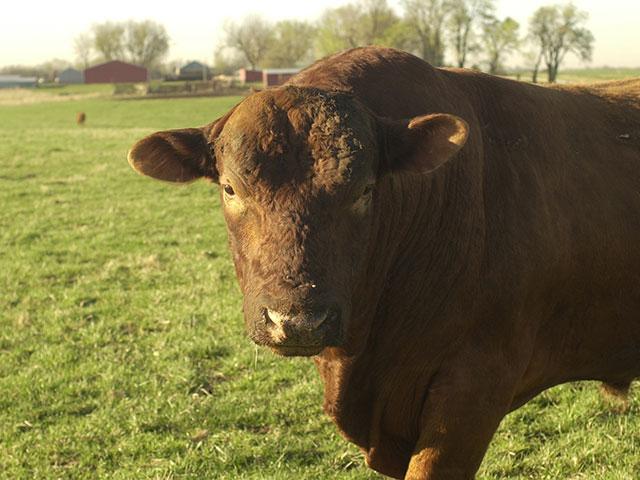Ask the Vet
Don't Let Cryptorchid Bull's Good Looks Fool You
READER QUESTION:
My neighbor sells registered Black Angus bulls to high-end cattle ranchers. I told him if he ever had a cull bull, let me know. He has one, but it only has one testicle. My herd is Angus, not registered. I know they test all their bulls. I think this one is only good for hamburger. Do you think he is a viable herd bull?
DR. MCMILLAN'S ANSWER:
Cryptorchid animals have either one (monorchid) or both testicles that do not descend into the scrotum. Testicles retained close to the body, or in the abdomen, do not produce fertile semen, but they do continue to produce testosterone.
P[L1] D[0x0] M[300x250] OOP[F] ADUNIT[] T[]
Testosterone can lead to more aggressive behavior, has been linked to an increase in "dark cutters" (dark, off-color meat), and may decrease tenderness of beef. So, steaks and roasts from a cryptorchid animal could be tougher than from steers castrated prior to weaning. Hamburger meat should be fine, though. In fact, a lot of lean hamburger meat comes from cull bulls.
Could this bull breed cattle? If only one testicle is retained, he certainly could, but his serving capacity would be reduced. In other words, he might be sub-fertile at best. This could lead to fewer calves being born, or calves being born later in the calving season.
While little research has been done on the heritability of cryptorchidism in cattle, data from other species (especially horses and dogs) has suggested the condition is highly heritable, and there is no reason to believe cattle would be any different. So, using a cryptorchid bull, even in a commercial operation, could increase the number of cryptorchid calves. This can create issues both in the herd he is used in and in the supply chain.
If you want hamburger meat, go for it. But resist the temptation to use him as a herd bull no matter how good he looks.
**
Editor's Note:
Please contact your veterinarian with questions pertaining to the health of your herd or other animals. Every operation is unique, and the information in this column does not pertain to all situations. This is not intended as medical advice but is purely for informational purposes.
Write Dr. Ken McMillan at Ask the Vet, 2204 Lakeshore Dr., Suite 415, Birmingham, AL 35209, or email vet@progressivefarmer.com.
(c) Copyright 2021 DTN, LLC. All rights reserved.






